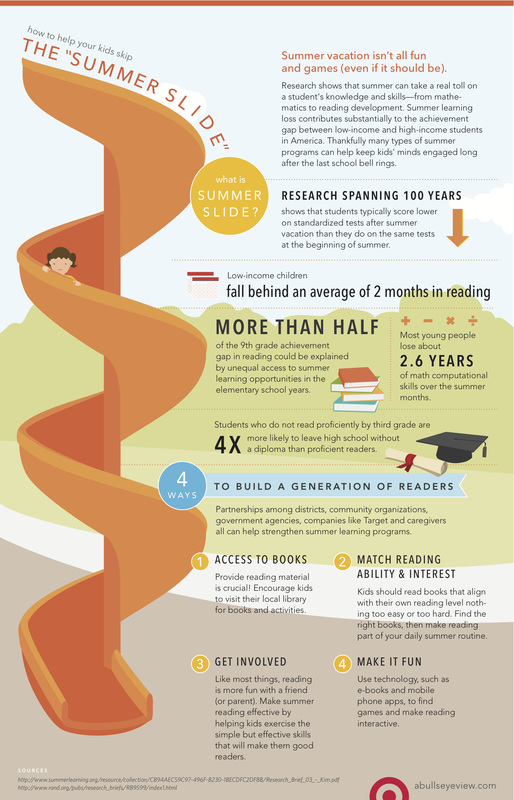The summer slide has proven controversial, with some research showing that upper income children experience virtually no slide at all and lower income children suffering summer slide only if their parents do not encourage summer reading (like taking them to the library and bookshops or enrolling them in the summer reading program.)
If you are a parent of a child who is an emergent reader or still struggling to master reading, writing and language than your child may suffer from the summer slide regardless of socioeconomic background.
To help out, we’ve compiled some tips on how to prevent summer slide and keep your kids engaged with reading and writing all summer long.
For Elementary and Middle School Students:
- All students can benefit from a trip to the local library bookshop. There are libraries near many coops in Kuwait and moms can check here for a full list of local libraries and bookshops.
- Parents of younger students can create a summer reading list with their children, and then reward them when they finish each book. Sign up for a summer reading program. Dar al Athar Al Islamiyya is planning a summer reading program as is the National Library and also Q8 Bookshop in Bayt Lothan. Parents can also sign their kids up online to one of the many ‘virtual’ summer reading programs.
- Read to your kids every day. Try to set a goal of 20 minutes reading time and 20 minutes writing time. Make a game or challenge of it. Read stories and the write their thoughts about the stories. Ask them to make up their own story. (All stories need are very simple elements: character, setting, plot, a title and then a beginning, middle and end. You can also ask them to illustrate the story and do a ‘chapter’ a day or over the course of a week and incorporate different activities, ideas into the story to extend the learning.)
- Let your child choose what they want to read – or be read to – for 30 minutes each day. Children are much more likely to engage in material that interests them rather than materials that are forced on them.
- Use language and reading opportunities throughout the day. Talk often with your child and point out reading materials wherever possible: on menus, magazines and newspapers, signs, brochures, maps, guidebooks, smartphones, ipads, etc.
- Make daily reading a social event. Get the whole family to join in with their own books or take turns reading the same book aloud. Include telling stories as well.
- Connect reading to other summer events. If you take your child to the beach or pool, think about reading a book about fish or an underwater world before and afterward. This will place your child’s reading within a larger context.


 RSS Feed
RSS Feed
